第5章 ADVENTURES AMONG BOOKS(4)
Ethel was a mystery, and not an interesting mystery, though one used to copy Doyle's pictures of her, with the straight nose, the impossible eyes, the impossible waist. It was not Ethel who captivated us; it was Clive's youth and art, it was J. J., the painter, it was jolly F. B. and his address to the maid about the lobster. "A finer fish, Mary, my dear, I have never seen. Does not this solve the vexed question whether lobsters are fish, in the French sense?" Then "The Rose and the Ring" came out. It was worth while to be twelve years old, when the Christmas books were written by Dickens and Thackeray. I got hold of "The Rose and the Ring," I know, and of the "Christmas Carol," when they were damp from the press. King Valoroso, and Bulbo, and Angelica were even more delightful than Scrooge, and Tiny Tim, and Trotty Veck. One remembers the fairy monarch more vividly, and the wondrous array of egg-cups from which he sipped brandy--or was it right Nantes?--still "going on sipping, I am sorry to say," even after "Valoroso was himself again."But, of all Thackeray's books, I suppose "Pendennis" was the favourite. The delightful Marryat had entertained us with Peter Simple and O'Brien (how good their flight through France is!) with Mesty and Mr. Midshipman Easy, with Jacob Faithful (Mr. Thackeray's favourite), and with Snarleyyow; but Marryat never made us wish to run away to sea. That did not seem to be one's vocation. But the story of Pen made one wish to run away to literature, to the Temple, to streets where Brown, the famous reviewer, might be seen walking with his wife and umbrella. The writing of poems "up to"pictures, the beer with Warrington in the mornings, the suppers in the back-kitchen, these were the alluring things, not society, and Lady Rockminster, and Lord Steyne. Well, one has run away to literature since, but where is the matutinal beer? Where is the back-kitchen? Where are Warrington, and Foker, and F. B.? I have never met them in this living world, though Brown, the celebrated reviewer, is familiar to me, and also Mr. Sydney Scraper, of the Oxford and Cambridge Club. Perhaps back-kitchens exist, perhaps there are cakes and ale in the life literary, and F. B. may take his walks by the Round Pond. But one never encounters these rarities, and Bungay and Bacon are no longer the innocent and ignorant rivals whom Thackeray drew. They do not give those wonderful parties; Miss Bunnion has become quite conventional;Percy Popjoy has abandoned letters; Mr. Wenham does not toady; Mr.
Wagg does not joke any more. The literary life is very like any other, in London, or is it that we do not see it aright, not having the eyes of genius? Well, a life on the ocean wave, too, may not be so desirable as it seems in Marryat's novels: so many a lad whom he tempted into the navy has discovered. The best part of the existence of a man of letters is his looking forward to it through the spectacles of Titmarsh.
One can never say how much one owes to a school-master who was a friend of literature, who kept a houseful of books, and who was himself a graceful scholar, and an author, while he chose to write, of poetic and humorous genius. Such was the master who wrote the "Day Dreams of a Schoolmaster," Mr. D'Arcy Wentworth Thompson, to whom, in this place, I am glad to confess my gratitude after all these many years. While we were deep in the history of Pendennis we were also being dragged through the Commentaries of Caius Julius Caesar, through the Latin and Greek grammars, through Xenophon, and the Eclogues of Virgil, and a depressing play of Euripides, the "Phoenissae." I can never say how much I detested these authors, who, taken in small doses, are far, indeed, from being attractive.
Horace, to a lazy boy, appears in his Odes to have nothing to say, and to say it in the most frivolous and vexatious manner. Then Cowper's "Task," or "Paradise Lost," as school-books, with notes, seems arid enough to a school-boy. I remember reading ahead, in Cowper, instead of attending to the lesson and the class-work. His observations on public schools were not uninteresting, but the whole English school-work of those days was repugnant. One's English education was all got out of school.
As to Greek, for years it seemed a mere vacuous terror; one invented for one's self all the current arguments against "compulsory Greek." What was the use of it, who ever spoke in it, who could find any sense in it, or any interest? A language with such cruel superfluities as a middle voice and a dual; a language whose verbs were so fantastically irregular, looked like a barbaric survival, a mere plague and torment. So one thought till Homer was opened before us. Elsewhere I have tried to describe the vivid delight of first reading Homer, delight, by the way, which St.
Augustine failed to appreciate. Most boys not wholly immersed in dulness felt it, I think; to myself, for one, Homer was the real beginning of study. One had tried him, when one was very young, in Pope, and had been baffled by Pope, and his artificial manner, his "fairs," and "swains." Homer seemed better reading in the absurd "crib" which Mr. Buckley wrote for Bohn's series. Hector and Ajax, in that disguise, were as great favourites as Horatius on the Bridge, or the younger Tarquin. Scott, by the way, must have made one a furious and consistent Legitimist. In reading the "Lays of Ancient Rome," my sympathies were with the expelled kings, at least with him who fought so well at Lake Regillus:-"Titus, the youngest Tarquin, Too good for such a breed."Where -